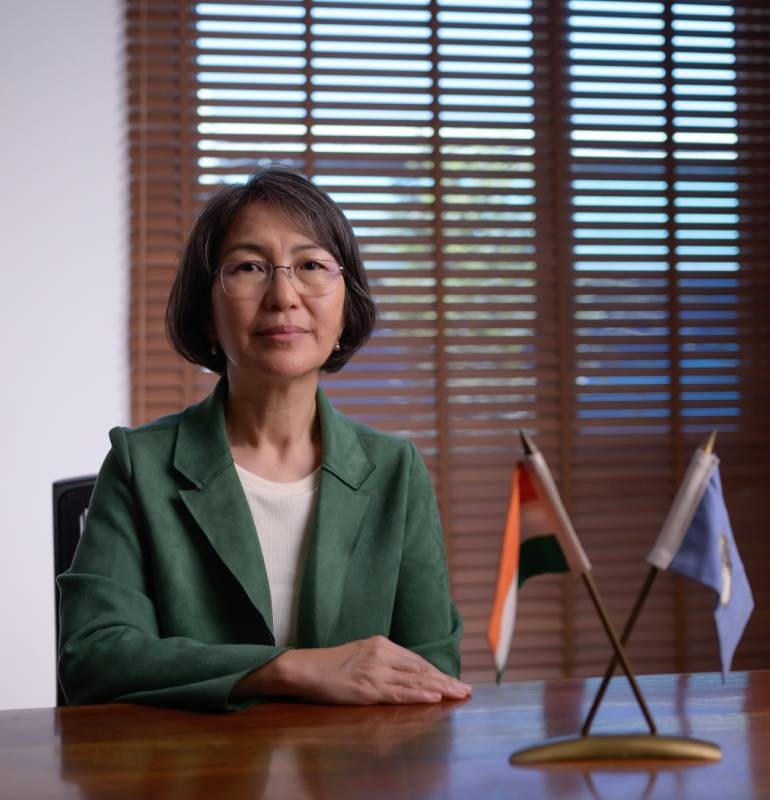
Ms Payden
Acting WHO Representative to India, and WHO Representative to Maldives
Ms Payden took additional charge as Acting WHO Representative to India on 4 November 2025. She currently serves as the WHO Representative to Maldives.
Ms Payden brings over 30 years of extensive experience in public health, spanning national, regional, and international levels. Her career includes seven years as Deputy WHO Representative to India, 11 years as Regional Advisor at the WHO Regional Office for South-East Asia, and 13 years with the Ministry of Health, Bhutan.
Throughout her career, Ms Payden has provided strategic leadership in areas such as water, sanitation and hygiene (WASH), climate change and health, and healthcare waste management. She has supported WHO Member States in developing policies, standards, and guidelines, while strengthening institutional capacities across these sectors. Her efforts have successfully mobilized substantial resources from a wide range of donors to advance public health programmes.
Ms Payden has also played a critical role in WHO’s emergency and humanitarian operations, including deployments to Myanmar during Cyclone Nargis, Nepal following the 2015 earthquake, and Bangladesh in support of the Rohingya refugee response.
As Deputy WHO Representative to India, she provided strategic guidance for accelerating the elimination of visceral leishmaniasis, lymphatic filariasis, tuberculosis, measles and rubella, and leprosy. She also coordinated WHO’s collaboration with India on comprehensive primary health care, universal health coverage, polio eradication, noncommunicable diseases, environmental health, and the COVID-19 response.
Ms Payden holds a Master of Science in Sanitary Engineering from IHE Delft, the Netherlands, and a Master of Science in Public Health from the London School of Hygiene and Tropical Medicine, United Kingdom.

